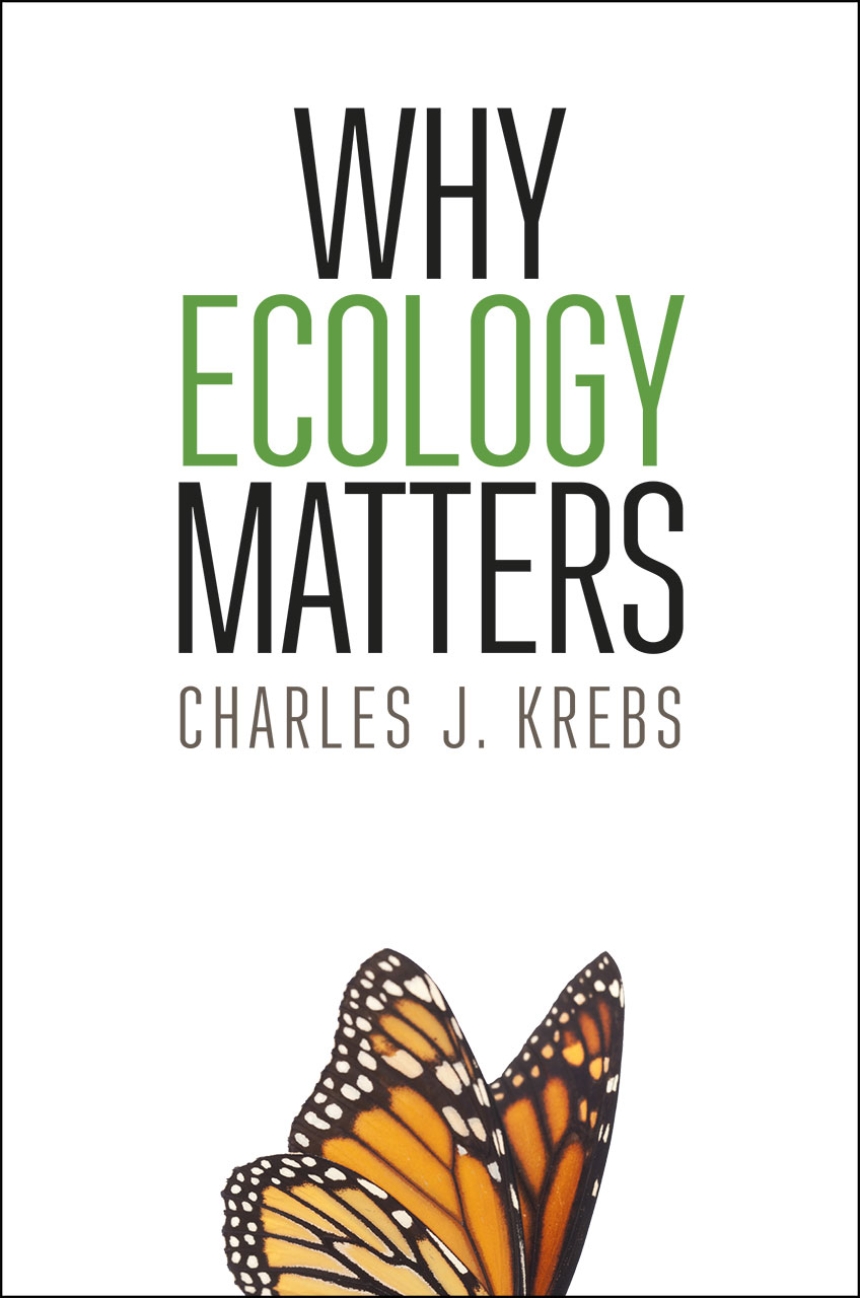Why Ecology Matters
Global temperatures and seawater levels rise; the world’s smallest porpoise species looms at the edge of extinction; and a tiny emerald beetle from Japan flourishes in North America—but why does it matter? Who cares? With this concise, accessible, and up-to-date book, Charles J. Krebs answers critics and enlightens students and environmental advocates alike, revealing not why phenomena like these deserve our attention, but why they demand it.
Highlighting key principles in ecology—from species extinction to the sun’s role in powering ecosystems—each chapter introduces a general question, illustrates that question with real-world examples, and links it to pressing ecological issues in which humans play a central role, such as the spread of invasive species, climate change, overfishing, and biodiversity conservation. While other introductions to ecology are rooted in complex theory, math, or practice and relegate discussions of human environmental impacts and their societal implications to sidebars and appendices, Why Ecology Matters interweaves these important discussions throughout. It is a book rooted in our contemporary world, delving into ecological issues that are perennial, timeless, but could not be more timely.
Highlighting key principles in ecology—from species extinction to the sun’s role in powering ecosystems—each chapter introduces a general question, illustrates that question with real-world examples, and links it to pressing ecological issues in which humans play a central role, such as the spread of invasive species, climate change, overfishing, and biodiversity conservation. While other introductions to ecology are rooted in complex theory, math, or practice and relegate discussions of human environmental impacts and their societal implications to sidebars and appendices, Why Ecology Matters interweaves these important discussions throughout. It is a book rooted in our contemporary world, delving into ecological issues that are perennial, timeless, but could not be more timely.
Read the first chapter.
208 pages | 68 halftones, 12 line drawings, 3 tables | 6 x 9 | © 2016
Biological Sciences: Conservation, Ecology
Earth Sciences: Environment
Reviews
Table of Contents
Preface
1 What Limits the Geographic Distribution of Organisms?
2 Populations Cannot Increase without Limit
3 Favorable and Unfavorable Habitats Exist for Every Species
4 Overexploited Populations Will Collapse
5 Plant and Animal Communities Can Recover from Disturbances
6 Communities Can Exist in Several Configurations
7 Keystone Species May Be Essential to the Functioning of Biological Communities
8 Natural Systems Are Products of Evolution
9 Natural Systems Recycle Essential Materials
10 Solar Energy Powers Natural Ecosystems
11 Climates Change, Communities and Ecosystems Change
12 Extinction Is Forever and Species Losses Caused by Humans Are Avoidable
References
Index
1 What Limits the Geographic Distribution of Organisms?
2 Populations Cannot Increase without Limit
3 Favorable and Unfavorable Habitats Exist for Every Species
4 Overexploited Populations Will Collapse
5 Plant and Animal Communities Can Recover from Disturbances
6 Communities Can Exist in Several Configurations
7 Keystone Species May Be Essential to the Functioning of Biological Communities
8 Natural Systems Are Products of Evolution
9 Natural Systems Recycle Essential Materials
10 Solar Energy Powers Natural Ecosystems
11 Climates Change, Communities and Ecosystems Change
12 Extinction Is Forever and Species Losses Caused by Humans Are Avoidable
References
Index
